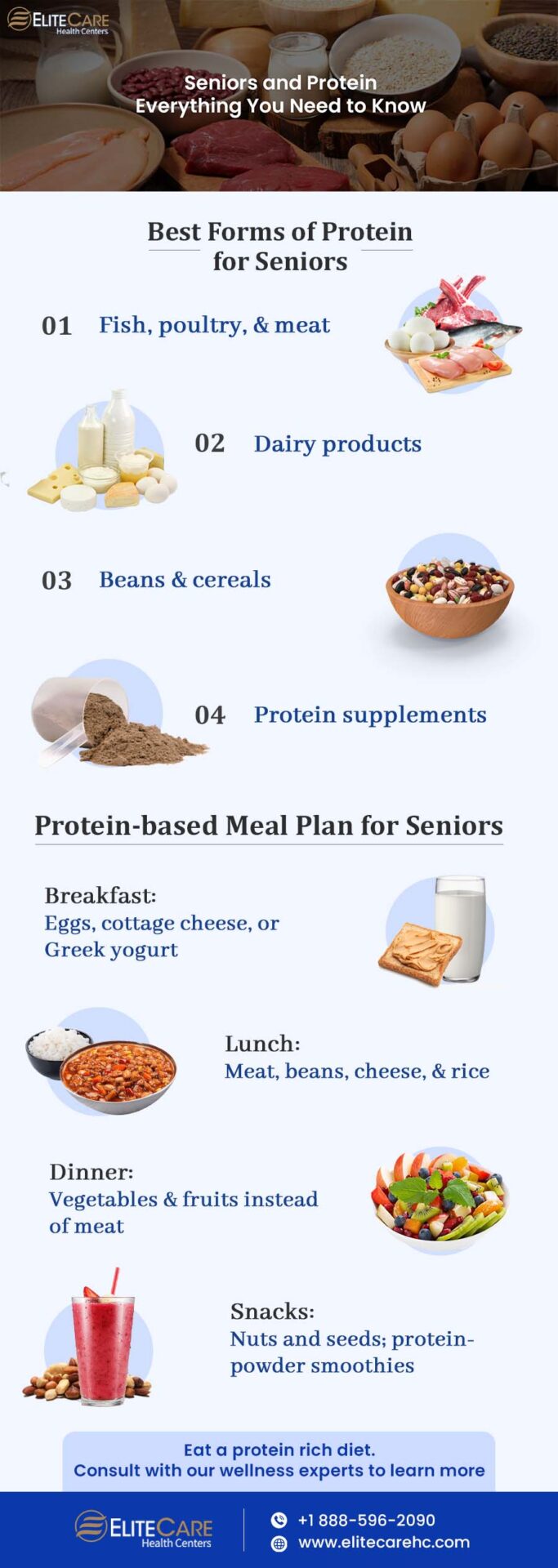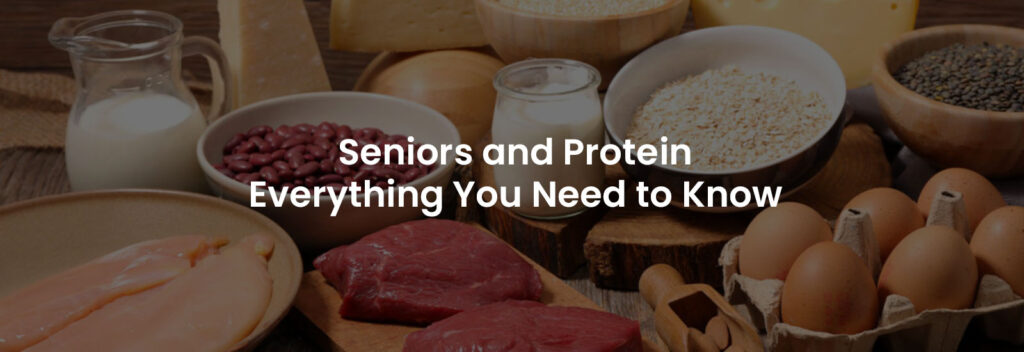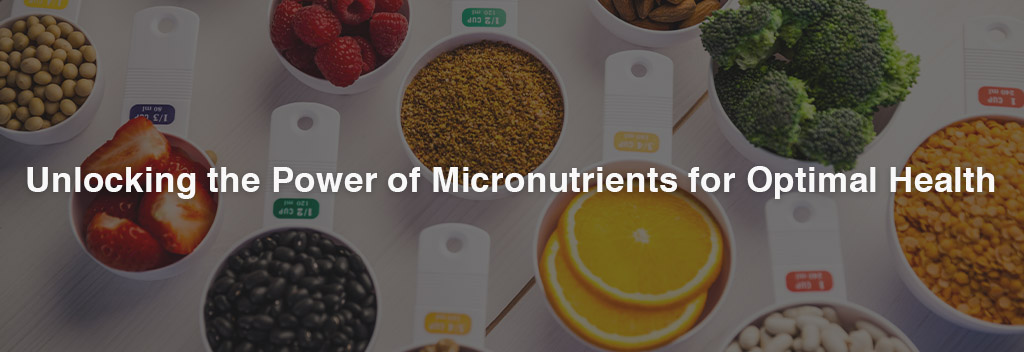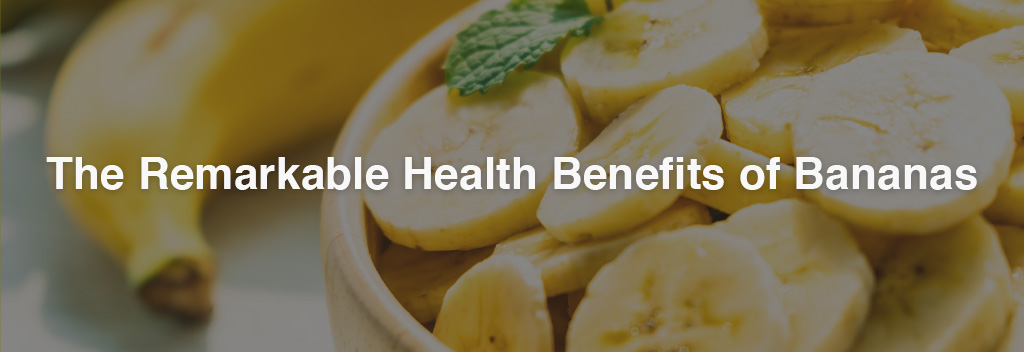
It is common for seniors to be concerned about calories, sugar or salt intake, or about vitamin and mineral intake. But does protein receive the same amount of importance? Not so much. According to research*, more than half of the US seniors consume protein below the recommended dietary allowance of 1.2 g/kg body weight.
This is alarming because, contrary to common misconceptions, seniors need more protein than youngsters to lead a good quality of life.
Why Do Seniors Need More Protein?
Proteins serve as the body’s building blocks and help to form new cells, skin, tendons, and ligaments. As we age, the body’s protein synthesis starts declining, i.e., it breaks down more proteins than it can generate, leading to muscle loss, poor immunity, and longer healing time.
Read More: Can Food Improve Your Brain Health?
Another issue that seniors face is poor protein absorption rates. For example, in some cases, even if the senior is getting the recommended protein intake, the body may not be able to absorb it into the body as well as a young body can, which can lead to muscle wasting. Inflammation brought on by co-morbidities, illnesses, or surgeries can also increase the body’s need for protein.
Seniors above 50 are also more prone to conditions like sarcopenia that lead to loss of muscle mass. Protein consumption can significantly lower their risk of contracting this illness and aid in the fight against paralysis.
Protein Intake for Seniors
According to the latest research, seniors should consume between 1.2 and 2.0 g protein for every kilogram of body weight per day. Calculate the right amount of protein requires by multiplying 1.0 g of protein per kilogram of body weight to get each day’s protein requirement for seniors. For example, if a person weighs 75 kilograms (weight in pounds divided by 2.2), their RDA sufficient protein consumption per day is 75 x 0.8 = 60 grams of protein per day.
Read More: Best Foods to Lower Blood Pressure If You Are Above 65
At times people eat one large meal during the day which is protein heavy and does not include any protein in their other meals. But ideally protein intake should be spread throughout the day (1/3rd of the daily intake at each meal) as it improves absorption and muscle mass.
For expert advice, it is safe to consult a primary care physician or a dietitian and follow the prescribed protein intake via a suggested meal plan.
How Should Seniors Consume Protein?
For a protein-rich diet, animal-based protein sources are regarded as “complete,” because they include the required levels of each of the nine essential amino acids compared to plant-based proteins.
However, seniors who follow a vegan diet can eat a wide variety of plant-based, high-protein foods throughout the day. Quinoa and soy are two examples of plant foods that are regarded as complete in all respects. Certain food combinations like grains and legumes, rice and beans, or peanut butter on whole-wheat toast, can fulfill protein requirements when included in the same day’s diet.
Read more: How to Shop for Healthy Meal Prep
Best Forms of Protein for Seniors
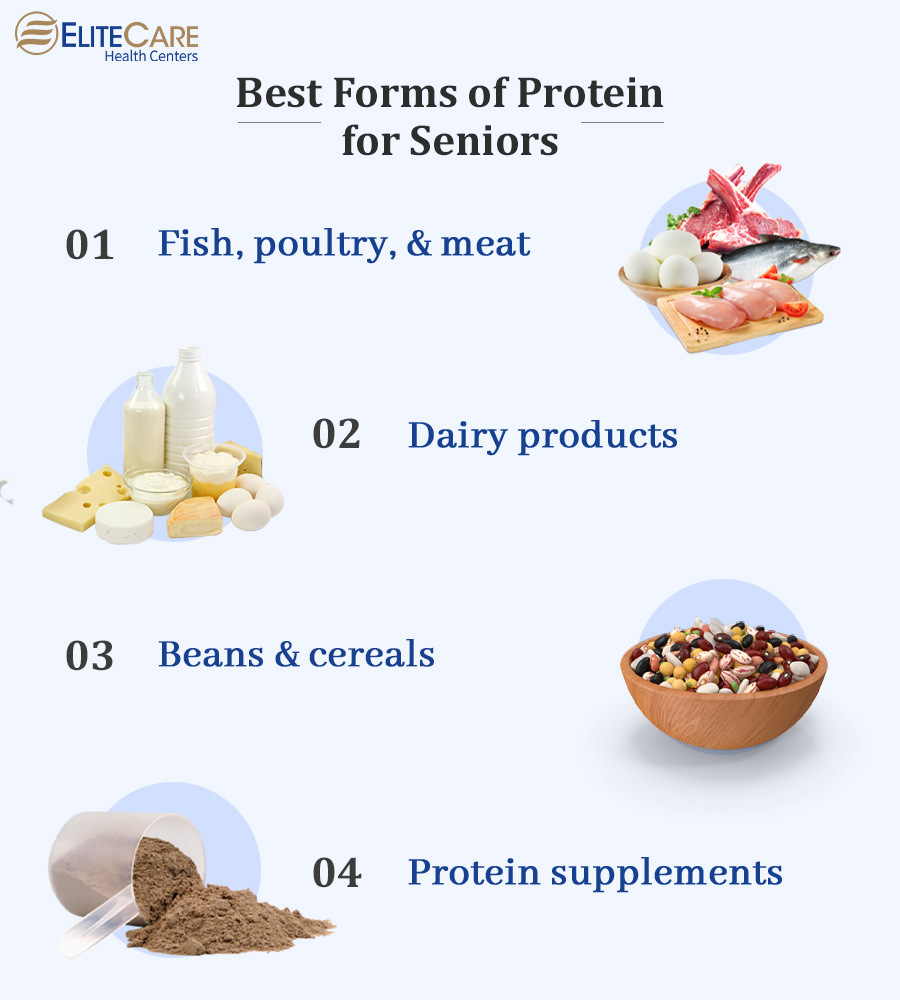
- Fish, poultry, and meat are excellent sources of protein and contain all the amino acids. A can of tuna fish or chicken has 40 grams of protein, and an egg white has 7 grams.
- Dairy products contain protein, calcium, and other minerals that can have a good impact on aging and health.
- Beans and cereals are additional high-protein food options.
- Protein supplements – Seniors may consume too few calories if they substitute protein drinks for meals. But if elders have trouble chewing, they can be given soy, whey, or casein-based
protein drinks.
Protein-based Meal Plan for Seniors
Follow this meal plan to meet the daily protein requirement for seniors:
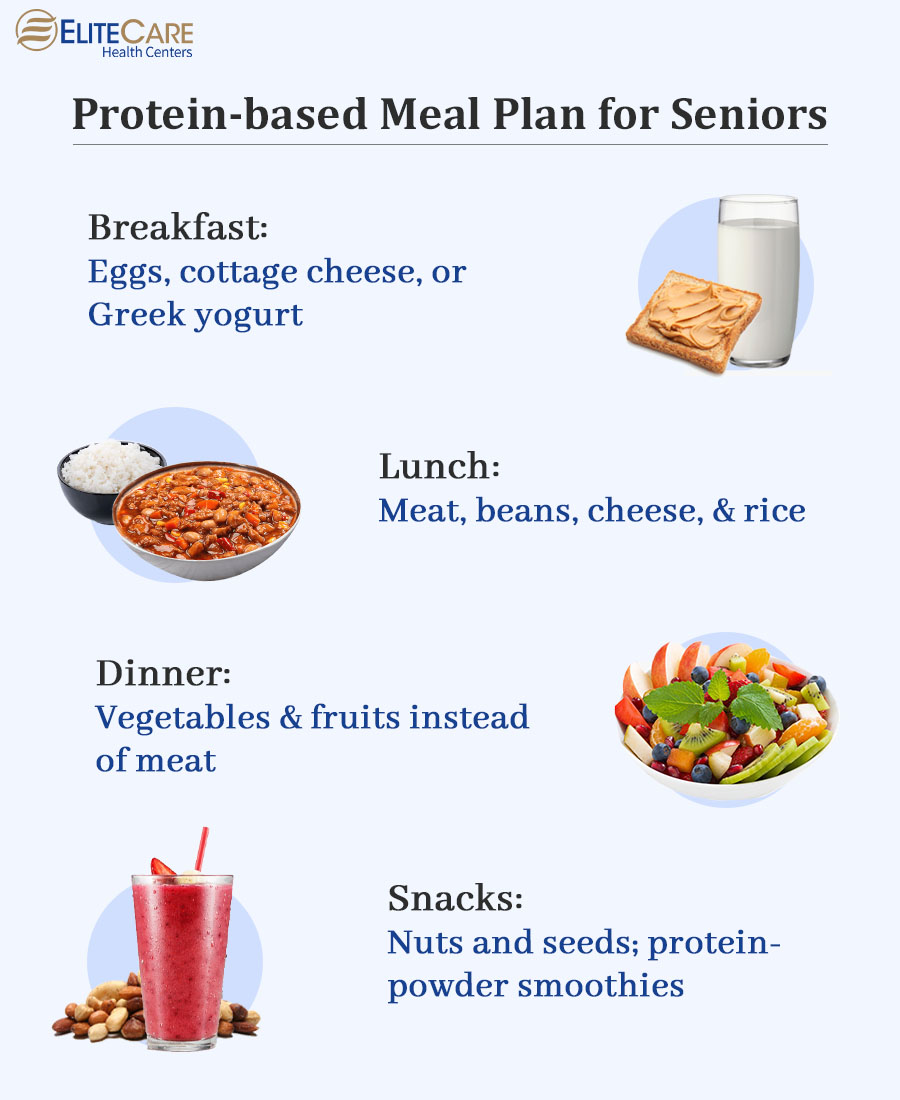
Breakfast
Seniors can get 20 g of protein from an egg, a slice of bread with peanut butter, and a full glass of soy milk. To increase the amount of protein in their diet, vegetarians can choose protein-based cereal for breakfast in place of eggs and can cook it in soy milk instead of water.
Lunch
Meat, beans, cheese, and rice will offer 25 grams of protein. Seniors can get some protein for lunch by adding beans or sprouts to their salad or soup.
Dinner
To complement protein at dinner, consider serving additional vegetables and fruits instead of meat. The elderly should have more protein at breakfast or lunch and less at night as it’s difficult to digest.
Snacks
Seniors can add nuts and seeds to protein-packed smoothies as an additional source of protein.
Side Effects of Too Much Protein
Protein is indeed a vital macro-nutrient that you cannot avoid. However, consuming excessive protein than the recommended amount can result in the following health issues:
- Kidney damage for people already diagnosed with kidney issues.
- Cancer
- Protein supplements
Summing Up
Older people who consume more protein are less likely to lose the capability to carry out everyday tasks like the capacity to dress oneself, get out of bed, climb stairs, and do other activities than those who consume less protein. Therefore, seniors should reconsider the amount of protein they consume every day and increase their intake if required. Individuals should always consult a primary care physician or a registered dietitian to determine how much protein they need. Contact EliteCare Health Center, one of the leading medical clinics in Florida, offering a wide range of senior care services. Contact us to schedule an appointment with our primary care physicians in your nearest EliteCare healthcare center.
* Data retrieved from “Prevalence of protein intake below recommended in community‐dwelling older adults: a meta‐analysis across cohorts from the PROMISS consortium.” Journal of Cachexia, Sarcopenia and Muscle, 11(5), 1212–1222.
